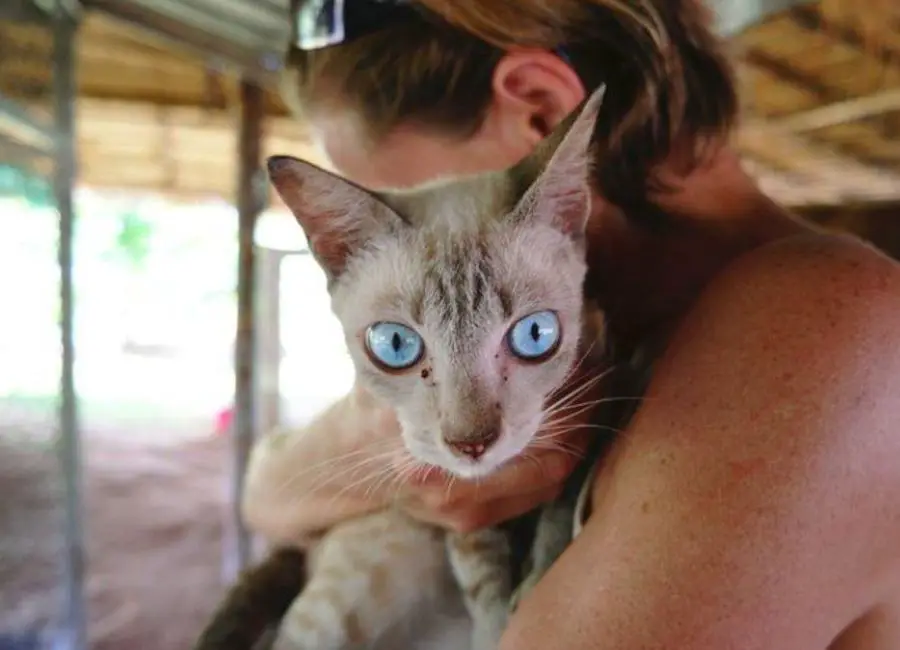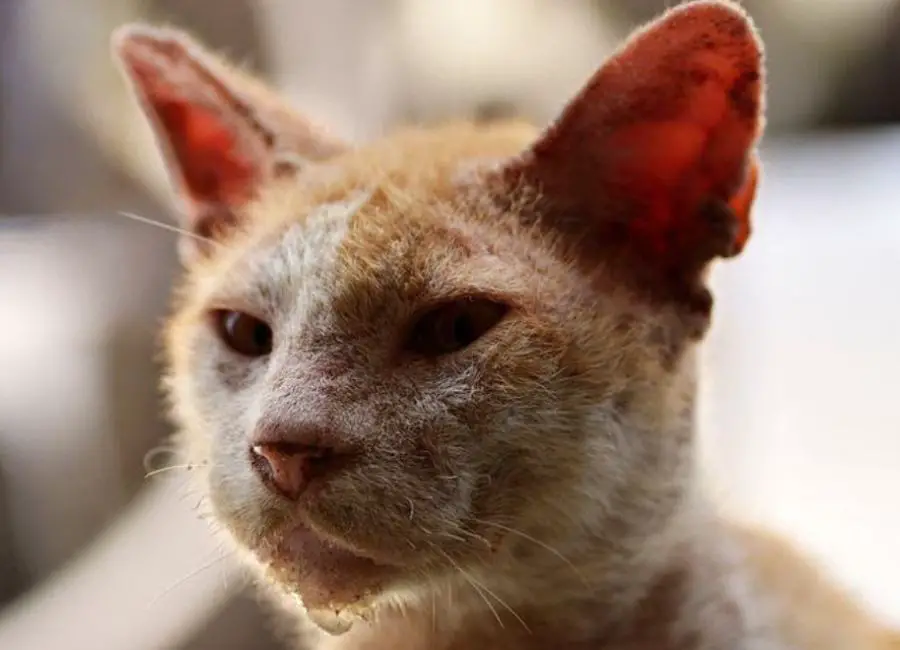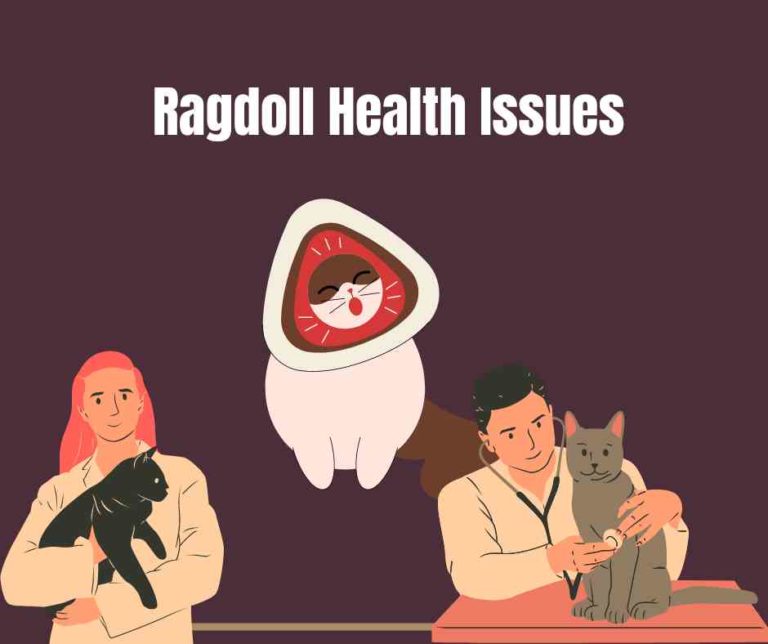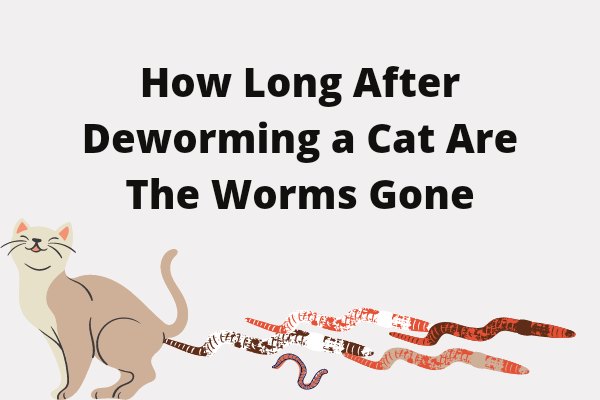10 Most Common Cat Dewormer Side Effects You Should Know

There are so many cat dewormer side effects you should know, in this post, we will be discussing only the most common ten.
Although dewormer side effects are rare, some cats may experience vomiting, diarrhea, appetite loss, or excessive salivation.
If any of these effects do appear, they typically do so within 24 hours of taking the medicine and should go away on their own.
But if they fail to go on their own for any reason whatsoever you should consider talking to a Veterinarian
Do not carry out self-medication for your cat or give any dewormer without contacting your Vet.
Kindly see a vet for the right worm treatment!
10 Cat Dewormer Side Effects

How often you see cat dewormer side effects differ from one cat to another and also on the type of worm drug you used in deworming.
Factors to consider include:
- The age of your cat.
- Health status of your cat before deworming.
- The dosage of worm drug you administered.
- Type of worm drug you used.
- Type of worm present in the cat, etc.
After considering all these factors you should be able to figure out the range of side effects of deworming your cat.
That being said…
Here are some of the most common cat dewormer side effects you should know:
1. Vomiting
Vomiting is a common side effect of deworming.
Vomiting can be caused by your cat’s body rejecting the medication or by ingesting part of the tablet or capsule.
Either way, vomiting will likely occur within an hour after administration and last for a few hours.
Vomiting can be treated with bland foods (no fish or chicken), small amounts of water, and over-the-counter medications like Kaopectate or Pepto Bismol to help soothe your pet’s stomach.
Read more: 17 Most Common Symptoms Of Worms In Cats You Should Know.
2. Lethargy
Lethargy or extreme fatigue is a common side effect of dewormer.
The cat will feel tired and may sleep for most of the day.
This lethargy can last for 4-5 days and then gradually subside as the parasite is killed off by the medication.
If your cat is showing signs of this severe lethargy lasting longer than 5 days, contact your vet immediately to discuss treatment options.
3. Allergies
If your cat is allergic to the ingredients in dewormer pills, she may have an allergic reaction.
The symptoms of an allergic reaction can be similar to what happens when you take a pill for a cold or flu and experience side effects.
Symptoms of an allergic reaction include hives, rashes, runny nose and/or eyes, sneezing, itching around the mouth or face area (this is more common in dogs), vomiting, or diarrhea.
4. Seizures
If you’ve never experienced a seizure, it can be quite scary.
Your cat may be in a very dangerous situation if it has an unexpected seizure while they’re alone or not being monitored by someone who knows what to do.
If this happens, call the vet immediately and follow the instructions that are given to you.
Seizures are more than just unpleasant for cats—they can be dangerous!
Read more: 17 Most Common Signs Of Cat Dying Of Old Age & Tips.
5. Loss of Appetite
If you suspect your cat is not eating or has lost weight, it could be caused by worms.
It is possible for the worms to cause your cat to lose its appetite and therefore lose weight.
If you have any concerns about the health of your feline friend, consult with a veterinarian as soon as possible.
The sooner treatment begins, the better for both you and your pet!
6. Hives on Cats
Hives are raised, and red welts appearing on the skin.
They can be caused by many different things, including medicines and food allergies.
Hives are not dangerous and you don’t need to worry about them unless they become itchy or painful for your pet.
In most cases, they aren’t even uncomfortable for your cat.
If your cat has hives, try giving him an antihistamine such as diphenhydramine (Benadryl®) or cetirizine (Zyrtec®), better still contact your vet.
This will help reduce his discomfort and may even clear up the hives altogether!
Further reading: 13 Common Dying Cat Symptoms & Ways To Comfort Them.
7. Lowered Heart Rate
You can check your cat’s heart rate by feeling along the side of his chest, where his shoulder and elbow meet.
If you notice that he has a low heart rate, contact your veterinarian immediately.
A low heart rate could be caused by many things, including dehydration or an infection that requires antibiotics.
To prevent this condition from occurring in the first place:
Be cautious when administering dewormers to your pet; make sure they are given on an empty stomach; feed them a steady diet; avoid giving them too much water before taking their medication (if possible).
8. Loss of Control of Urination or Defecation
You should call the veterinarian if your cat has a reaction to dewormer pills.
The vet may want to give the cat an injection of corticosteroids or antihistamines, which can help reduce the severity of the symptoms.
In some cases, your vet might recommend trying a different type of dewormer medication that is less likely to cause reactions in cats.
If your pet is having trouble using their litter box and/or urinating outside of it (like on furniture).
Then you should also consider calling the veterinarian as soon as possible; this could be another sign of an adverse reaction to dewormer medications.
Recommended: How To Comfort A Sick Cat: 14 Useful Tips.
9. Excess Drooling
Drooling is one of the most common side effects of deworming your cat.
When you notice your feline friend drooling excessively, it may be due to the fact that he’s experiencing nausea as a result of his deworming medication.
If this is the case, simply give him a treat or two to distract him from his nausea.
If your cat’s excessive drooling is not due to a negative reaction to his medication but instead seems related to an allergy to something else in his environment (such as fleas).
Then consider whether there has been any recent change in what he eats and drinks before attempting any home remedies for controlling excessive drooling.
10. Fatigue or Weakness in Cats
Weakness or fatigue is a common side effect of dewormer pills.
If your cat is lethargic, it may be a side effect of the medication.
This can be treated with rest and plenty of water, but if you’re concerned about how much deworming medication your pet needs to take.
Talk to a veterinarian before giving more than one dose per day.
Read more: How To Comfort a Dying Cat: 16 Helpful Tips.
What to Do If Your Cat Has a Reaction to Dewormer Pills?
If your cat has a reaction to the dewormer, you should call the vet.
The vet may want to draw blood to test for any toxicosis or other side effects.
They will also want to see your cat so that they can decide on an appropriate treatment plan.
If your pet is not eating or drinking, is lethargic, vomiting, and/or having diarrhea after taking their medication.
This could be a sign of toxicosis and should be treated by calling your vet immediately.
Make sure your cat stays in a stress-free environment, with less direct sunlight exposure, and also spend more time with your cat.
How long do dewormer side effects last in cats?
On average, if any cat dewormer side effects do appear, they typically do so within 24 to 48 hours of giving the worm medicine to the cat and should go away on their own.
The period or the nature of these side effects depends on some factors which include:
- Type of deworming medicine you used.
- The dosage of deworming medicine used.
- The age of the cat.
- The type of worm present in your cat.
- Cat responsiveness, etc.
Recommended: How Long After Deworming a Cat Are The Worms Gone? (Answered!!!)
Frequently Asked Questions
What are the side effects of cat dewormer?
The side effects of cat dewormer can vary depending on the type of dewormer used, but common side effects include vomiting, diarrhea, and loss of appetite.
It is important to follow the dosage and administration instructions provided by your veterinarian and to contact them if you notice any adverse reactions.
Can cat dewormer cause allergic reactions?
Yes, some cats may develop allergic reactions to dewormer medications.
Signs of an allergic reaction may include swelling, hives, difficulty breathing, and collapse.
If you suspect your cat is having an allergic reaction to dewormer, seek emergency veterinary care immediately.
Can cat dewormer harm my cat’s liver or kidneys?
In rare cases, certain types of dewormer may cause liver or kidney damage in cats.
It is important to have your cat’s liver and kidney function evaluated prior to administering dewormer, and to monitor them for any signs of organ damage following treatment.
How can I minimize the risk of side effects from cat dewormer?
To minimize the risk of side effects from cat dewormer, it is important to follow the dosage and administration instructions provided by your veterinarian.
You should also inform your veterinarian of any allergies or medical conditions your cat has before administering dewormer.
What should I do if my cat experiences side effects after receiving dewormer?
If your cat experiences side effects after receiving dewormer, contact your veterinarian immediately.
They may recommend discontinuing the medication or adjusting the dosage.
In some cases, additional treatment may be necessary to manage the side effects.
Conclusion
Cats can have side effects from dewormer pills, but these side effects aren’t common and are often treatable.
Young, frail, or unwell cats are particularly susceptible to negative effects. Also, pay attention to cat lethargy after deworming.
A dewormer’s negative effects are also more likely to affect cats with renal issues.
If you notice your cat has an allergic reaction to a dewormer pill, contact your veterinarian immediately.
Your vet will advise you on how best to treat the allergy symptoms and ensure that the problem doesn’t worsen in the future.
It’s important to remember that side effects are not always indicative of a problem with dewormers or their treatment.
They’re simply something we should be aware of when administering them, so we can monitor our pets’ safety as well as possible.






